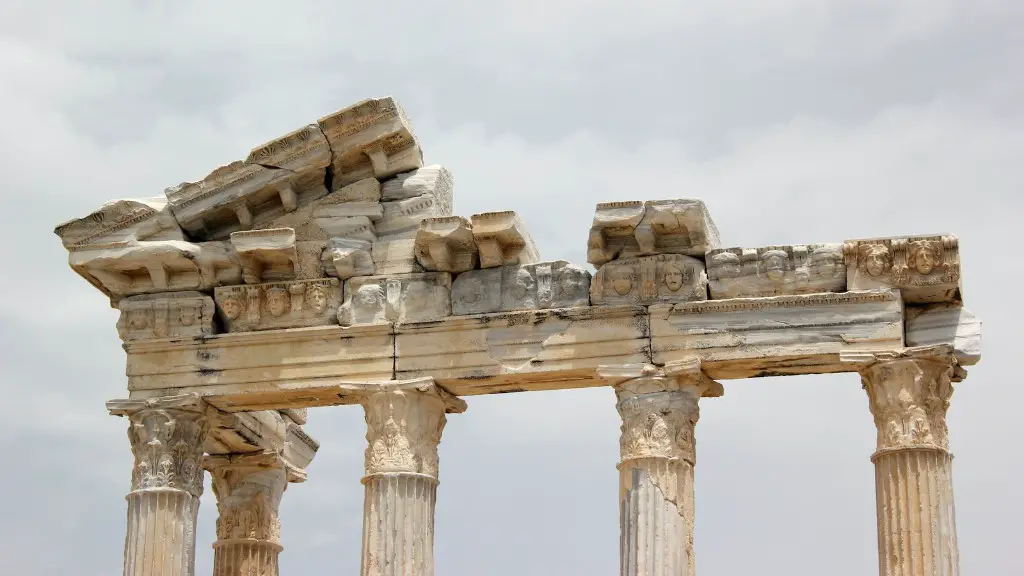The Roman Empire was one of the most powerful empires in the world for centuries. A large part of their success can be attributed to their religious beliefs and practices. The ancient Romans were pagans, meaning that they worshipped multiple gods and goddesses. They believed that these gods and goddesses controlled different aspects of their lives, and that it was important to honor them in order to stay in their good graces. This belief system helped to instill a sense of unity and purpose in the Roman people, and it played a significant role in their ability to conquer and control vast territory.
Yes, the ancient Romans were pagans.
What religion were the Romans?
The Roman Empire was a primarily polytheistic civilization, which meant that people recognized and worshiped multiple gods and goddesses. Despite the presence of monotheistic religions within the empire, such as Judaism and early Christianity, Romans honored multiple deities. The pantheon of Roman gods included Jupiter, Juno, Minerva, and Apollo, among others. Each god or goddess was responsible for a different aspect of Roman life, such as war, wisdom, or agriculture.
Paganism was not officially forbidden until AD 392, when Theodosius issued a long decree forbidding blood sacrifice and all forms of pagan worship, including private religious rites.
What was Roman paganism called
The Religio Romana is the pre-Christian religion of Rome. Sometimes called “Roman Paganism”, the modern practice of the Religio Romana is an attempt to reconstruct the ancient faith of Rome as closely as possible, making as few concessions to modern sensibilities as possible.
There are two main theories on why paganism declined in the late fourth and early fifth centuries. The first, held by traditional catastrophists, is that it was due to harsh Christian legislation and violence. The second, held by contemporary scholars, is that it was due to the growing appeal of Christianity and the declining appeal of paganism. Both theories have evidence to support them, but it is likely that a combination of both factors was responsible for the decline of paganism in this period.
What did the Romans call their own religion?
The Religio Romana was the religion of ancient Rome and it consisted of the worship of a number of gods and goddesses. The most important gods were Jupiter, the highest god, and Mars, the god of war. Other important gods included Mercury, the god of commerce, and Venus, the goddess of love. The Romans also believed in a number of minor gods and goddesses, such as the Lares, who were the guardians of the home, and the Penates, who were the guardians of the hearth.
The Roman religion was the worship of a large group of Greco-Roman gods. A Roman priest was responsible for the proper ritual worship of the gods. The official Roman religion included the worship of Jupiter, Juno, Minerva, and Mars.
What religion did the Romans hate?
Rome had the most problems with monotheistic religions, such as Judaism and Christianity, because these religions believe in only one god. This meant that they prohibited the worship of other gods, which was a major issue for the polytheistic Romans.
Julian was the last pagan emperor of Rome. His brief reign saw a resurgence in paganism, which was later quashed by his successor, Theodosius I. Nevertheless, Julian left a lasting mark on history and is remembered as one of Rome’s most able and innovative rulers.
Did Romans worship pagan gods
The Roman Empire was incredibly diverse, with people from all over the world living within its borders. As a result, the Roman Empire was very tolerant of different religions. The Roman pantheon of gods and goddesses was very eclectic, and included gods and goddesses from many different cultures. The Romans also adopted foreign cults, and practiced Emperor worship. Ultimately, the Roman Empire embraced Christianity.
Prior to the arrival of Christianity, the Romans practiced a polytheistic religion, meaning that they worshipped multiple gods. Unlike many contemporary religions like Islam, Judaism, or Hinduism, the Roman religion had no official name. The Roman pantheon consisted of hundreds of gods and goddesses, each of whom had their own area of expertise or sphere of influence. The most important gods were the 12 Olympians, who were believed to live on Mount Olympus. Other popular gods included Jupiter (the king of the gods), Mars (the god of war), Mercury (the god of commerce), Venus (the goddess of love), and Pluto (the god of the underworld).
Did the Romans think the planets were gods?
The planets were thought to be deities by the people of many ancient civilizations. Our names for the planets are the Roman names for these deities. For example, Mars was the god of war and Venus the goddess of love.
On February 27, 380, the Eastern Roman Emperor Theodosius I signed a decree in the presence of the Western Roman Emperor Valentinian II that made Christianity the religion of the state and punished the practice of pagan rituals. This act effectively ended the religious division of the Roman Empire and established Christianity as the dominant religion of the empire.
How was Roman paganism different from Christianity
The Romans were a religious people, but their religion was not focused on escaping punishment or receiving rewards in the afterlife. The arrival of Christianity changed that, as Christians believed in only one God and that proper belief was the key to winning his favor. This new way of thinking about religion caught on, and soon people were drawn to Christianity for its promises of eternal life in heaven.
In 392, Theodosius become Emperor of also the western part of the Roman Empire, the last emperor to rule over both. In the same year he officially began to proscribe the practice of paganism. This was when he authorized the destruction of many temples throughout the empire.
Why did Romans fear Christianity?
Christians in the Roman Empire were persecuted for their refusal to worship the emperor and take part in sacrifice. This was likely due to the general dislike for Christians arising from their refusal to worship the gods.
Roman religion was polytheistic from the beginning. The initial array of gods and spirits included Roman gods as well as foreign cults. The addition of Greek gods increased the number of gods worshipped by the Romans.
What gods did the Romans believe in
The three most important gods in Roman mythology were Jupiter (the king of the gods and protector of the state), Juno (the queen of the gods and protector of women) and Minerva (the goddess of craft and wisdom). Other major gods included Mars (the god of war), Mercury (the god of trade and messenger of the gods) and Bacchus (the god of grapes and wine production).
There is no one definitive definition of the Hindu religion. The word Hindu is an exonym, and while Hinduism has been called the oldest religion in the world, many practitioners refer to their religion as Sanātana Dharma (Sanskrit: सनातन धर्म, lit. “the eternal law”).Sanātana Dharma is a Sanskrit term often used to describe the religious traditions of India. In its broadest sense, it refers to the entire Indian subcontinent. However, while Hinduism is the primary religion of the subcontinent, there are a number of other religious traditions that have also been influential, including Buddhism, Jainism, and Sikhism.
Final Words
Yes, the ancient Romans were pagans.
The ancient Romans were pagans who worshipped a pantheon of gods and goddesses. They believed that these gods and goddesses controlled the natural world and that their power could be harnessed for human benefit. The ancient Romans built temples and other sacred spaces to honor their gods and goddesses and to ask for their protection and blessings.





